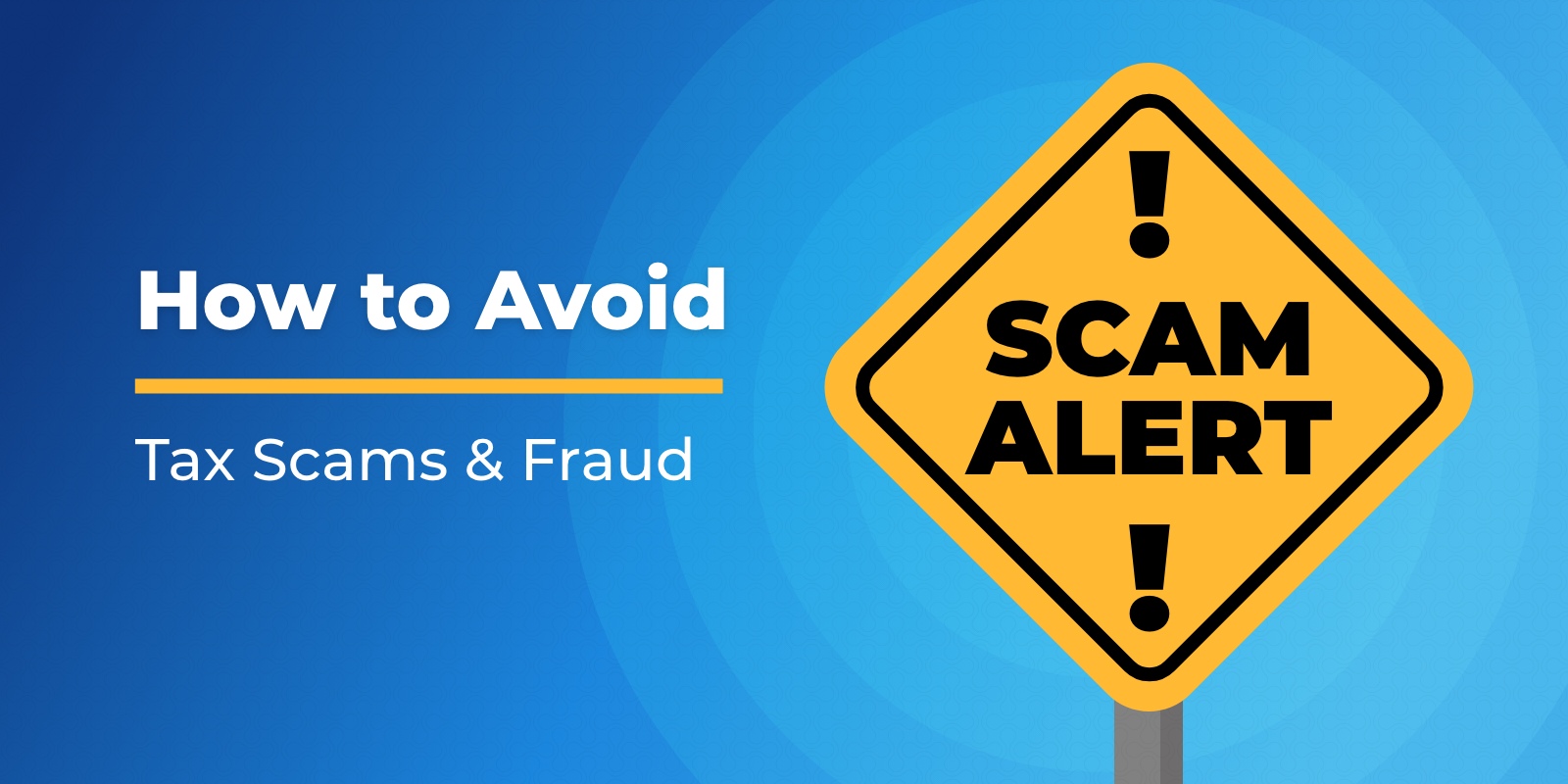How to Avoid Tax Scams & Fraud

Tax scams have become one of the most popular ways criminals steal money and identities. The IRS flagged over $5.7 billion in tax fraud last year and 2023 is not looking any better with so many tax scams circulating. Luckily, there are ways to help avoid tax scams and fraud. Here are the most common tax scams in 2023 and how you can avoid them.
What Are Tax Scams & Fraud?
Tax scams are when criminals use stolen information, like your name, address, birthdate or Social Security Number (SSN), to file a phony tax return. The criminals then steal your refund and leave you with the burden of dealing with the IRS. Tax scams happen all year long but especially during tax season.
Most Common Tax Scams in 2023
According to the IRS, there are a handful of popular scams that you should be wary of in 2023.
IRS Impersonation Scams: Criminals will ask for personal or financial information through unsolicited emails, phone calls, or text messages. Sometimes, scammers will send malicious links via email that entices you to click on it. This action prompts a download of identity-stealing malware onto your computer.
Ghost Tax Preparer Scams: Scammers pose as tax preparers and file your tax returns but do not sign the return or include a preparer tax ID number (PTIN). During the process, they can steal your identity and/or your tax refund.
Social Media Tax Scams: Criminals use your social media information to get other personal information. They might pose as a friend or relative to ask for money or donations. Alternatively, they can send messages that contain malware to steal your identity.
Fraudulent Unemployment Claim Scams: Scammers attempt to steal personal information to claim unemployment benefits on your behalf. You may not realize you were scammed until you receive a Form 1099-G at the end of the year.
Phony Charity Request Scams: Thieves set up phony charities to steal personal information or donations. These fake charities will not have an actual employer identification number (EIN), which is required to verify the existence of a charity.
Economic Impact Payment Scams: COVID-19 stimulus checks have stopped being sent out, but scammers are still sending malicious text messages, phone calls, and emails to request bank account information. They lead you to believe you will receive a new stimulus check, when really they are stealing your personal and financial information.
How to Avoid Tax Scams & Fraud
Knowing how the IRS operates can be the best way to protect yourself against tax scams and fraud. For example, the IRS will reach out to you initially through regular mail through the U.S. Postal Service. If your IRS notice looks suspicious, you can go on the IRS website to search for the letter or notice and confirm its authenticity. The IRS does make phone calls to taxpayers but never threatens legal action or requests payment information over the phone. If you receive a suspicious email or text claiming to be from the IRS, do not reply, click on any links, or open any attachments. If in doubt, you can call the IRS yourself to communicate your concerns.
Report All Tax Scams
Most importantly, you should report all tax scams. Just because you might recognize the scam immediately, it does not mean everyone else will. Reporting the scams can potentially help thousands of other taxpayers. Here’s a breakdown of what to do if you think you are being scammed.
- If you receive a suspicious email about your taxes, forward the email to phishing@irs.gov.
- If you receive a phony call, email a summary of the occurrence to phishing@irs.gov.
- If you clicked on a link within a suspicious email, or entered personal information, report the incident on the IRS Identity Theft Central webpage.
- If you receive a suspicious text message about your taxes, you can forward it to 202-552-1226.
- If you were scammed by your tax preparer, or believe your tax preparer is not following IRS rules, you can report them with Form 3949-A, Information Referral.
- If you receive a bogus form from a financial institution, you should report the incident to the financial institution directly.
It’s better to be safe than sorry in these scenarios, so always report when in doubt. Not doing so can lead to several issues with the IRS that can take months to correct. Dealing with the IRS under any circumstances can be tough. If you need tax help, Optima and our team of experts are here.
If You Need Tax Help, Contact Us Today for a Free Consultation